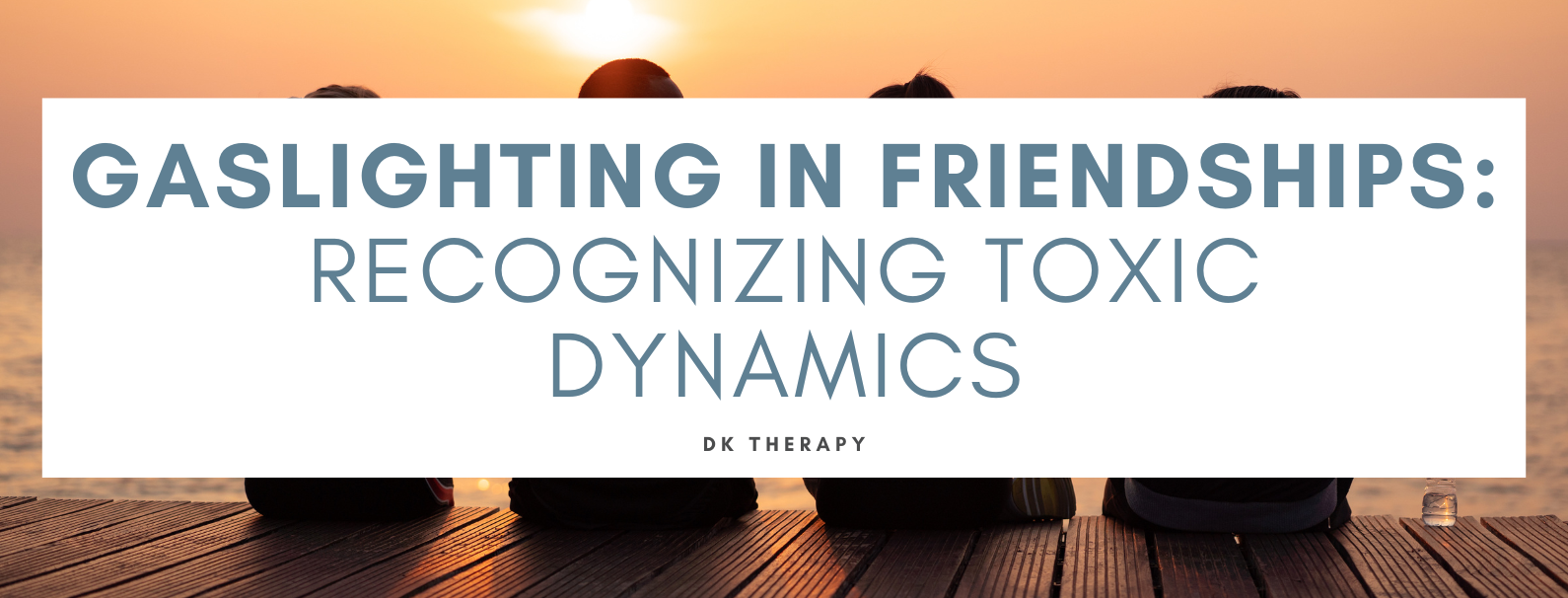
In any friendship, little arguments or misunderstandings can happen. It’s a normal part of the way a relationship evolves. But about when it seems like one friend is constantly trying to put down, invalidate, or manipulate another?
This behavior is known as gaslighting, and if you’re experiencing it in one of your friendly relationships, there are steps you can take to address it and move forward.
Gaslighting in Friendships
 Gaslighting is a form of manipulation that one person uses against another in order to establish control over a situation or narrative. While most of us don’t want to believe that our friends are capable of trying to harm us, gaslighting can and does occur between friends.
Gaslighting is a form of manipulation that one person uses against another in order to establish control over a situation or narrative. While most of us don’t want to believe that our friends are capable of trying to harm us, gaslighting can and does occur between friends.
Due to the dynamic nature of friendships, it can be difficult to notice when you’re being gaslit. This is because, in some situations, we may feel like our friends may be joking with us. We may tell ourselves that they don’t mean to make us feel bad, but when gaslighting occurs, it’s intentional.
Examples of a Gaslighting Friend
Gaslighting in friendships can be a little more subtle than it may be in other personal or professional relationships. At times, we may even excuse this sort of behavior by making ourselves believe our friends are just giving us a hard time. However, gaslighting in friendship is quite serious and may take on the following forms.
- Blatant lying about a situation or event, including doubling down when caught in a lie
- Bending reality by insinuating that something is wrong with you and your perception of events
- Invalidating you for the way you feel
- Insisting that something didn’t happen when you know that it did
- Refusing to apologize even when they’ve done something cruel
- Shifting blame from themselves to you
- Being overly critical of you
How to Respond to Gaslighting from a Friend
If your interactions with a friend leave you constantly feeling like you’re being gaslit and you don’t know which way is up anymore, there are a few things you can do to address the issue.
Talk About It
Unlike gaslighting in professional settings, where confronting the gaslighter might be dangerous, you might want to take a chance to talk about the situation at hand with a gaslighting friend. Do your best not to be accusatory, but calmly state your feelings on the matter. You could say something like, “I notice that whenever I talk about my parents, you tell me that I’m being too sensitive. I would appreciate it if you could respect my feelings and experiences.”
There’s no way to be certain that your gaslighting friend won’t attempt to gaslight you further, but when it comes to friendship, it’s worth trying to remedy the situation before taking more serious measures.
Set Boundaries
When you know that something is wrong with the way your friend treats you, it’s important to remind yourself that your feelings are valid. If a certain topic or situation tends to trigger gaslighting in your friend, do yourself a favor and set boundaries. Stop discussing certain topics with that person in order to protect yourself.
Leave the Situation
If being around a certain friend is making you feel mentally unwell or unreliable, you need to realize that this person is not really your friend. Don’t allow constant gaslighting to persist when you’re around a certain person. When all your friend seems to do is gaslight your every thought or experience, you might want to consider breaking off the friendship. You don’t deserve to be treated poorly, and you don’t owe anyone your self-worth.
Gaslighting can be extremely hurtful, especially when it’s coming from someone you trust and respect. However, by being aware of how gaslighting affects friendships, you can identify when it happens to you, and from there, you can take the steps necessary to protect yourself from further damage.
If you’re struggling with a gaslighting friend and you believe that therapy may help you make sense of your situation, feel free to reach out to DK Therapy. Schedule an appointment here to speak to one of our experienced counselors.




